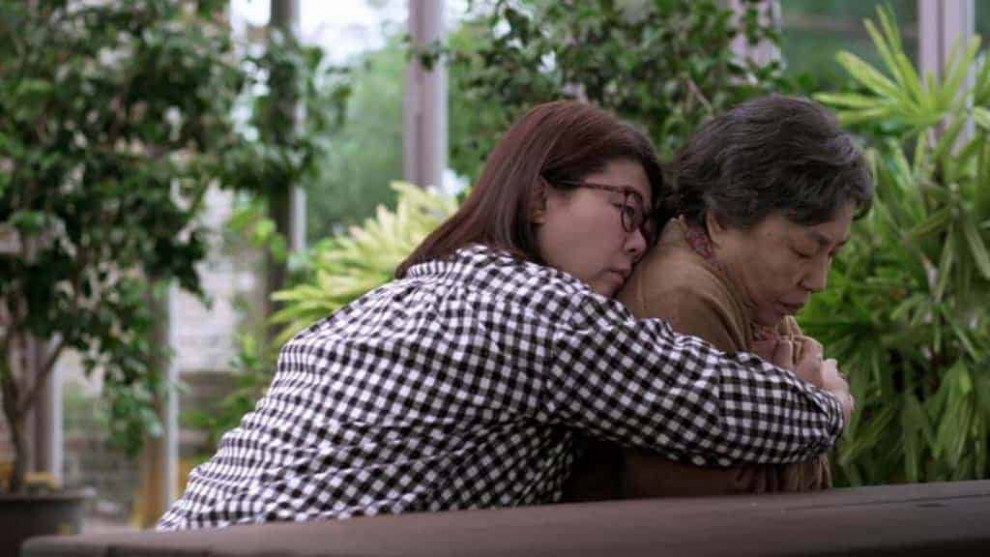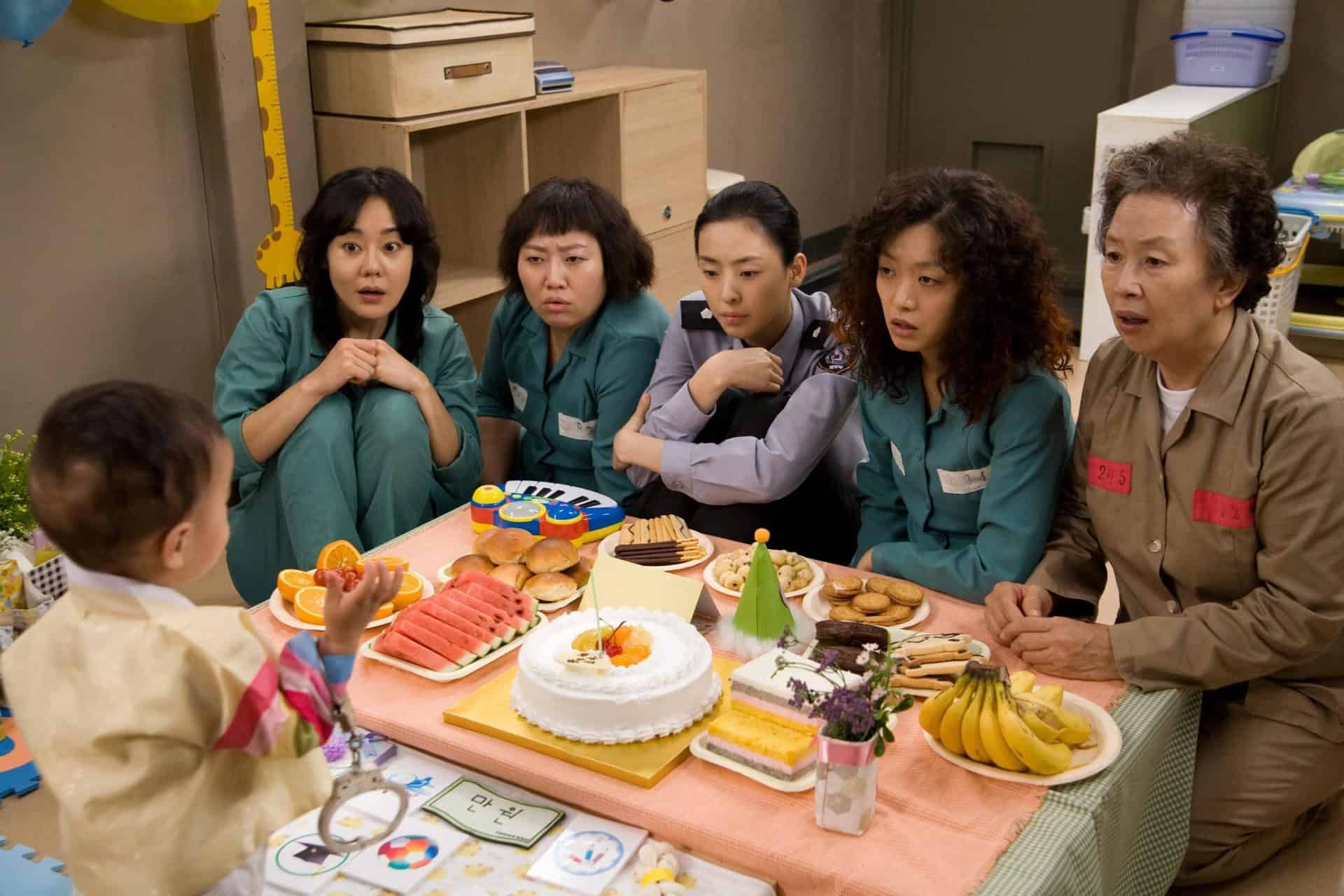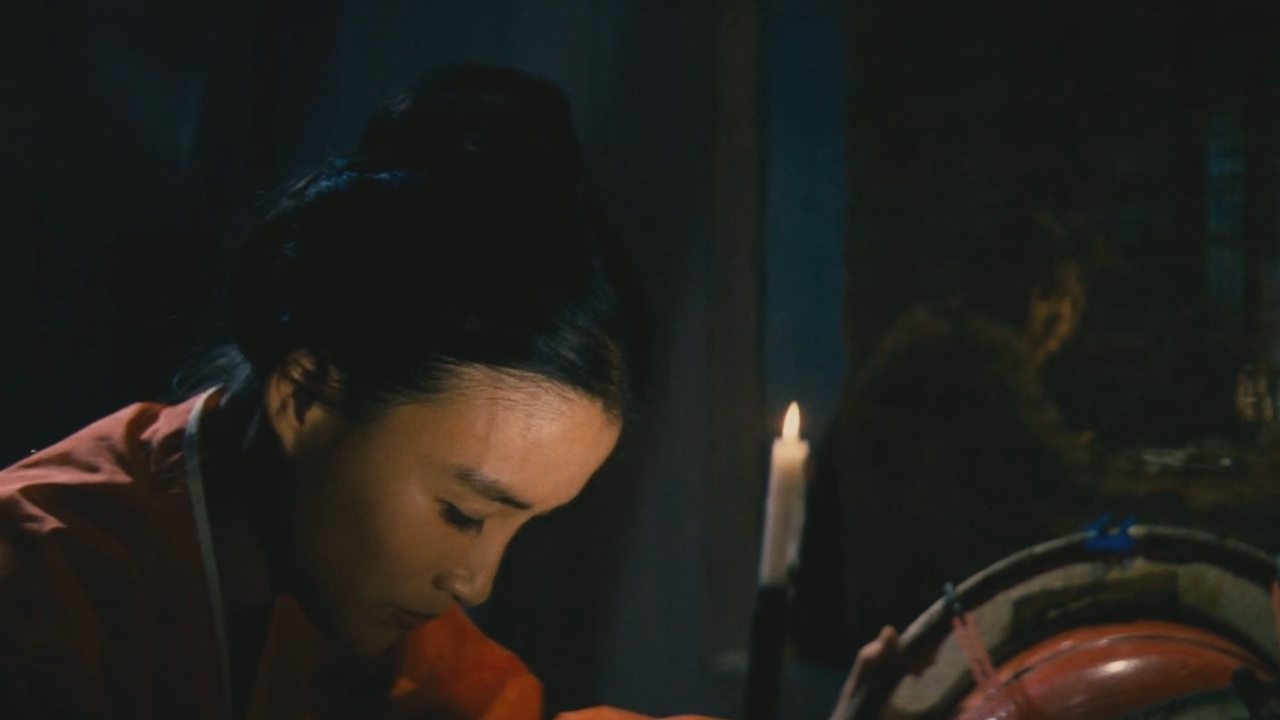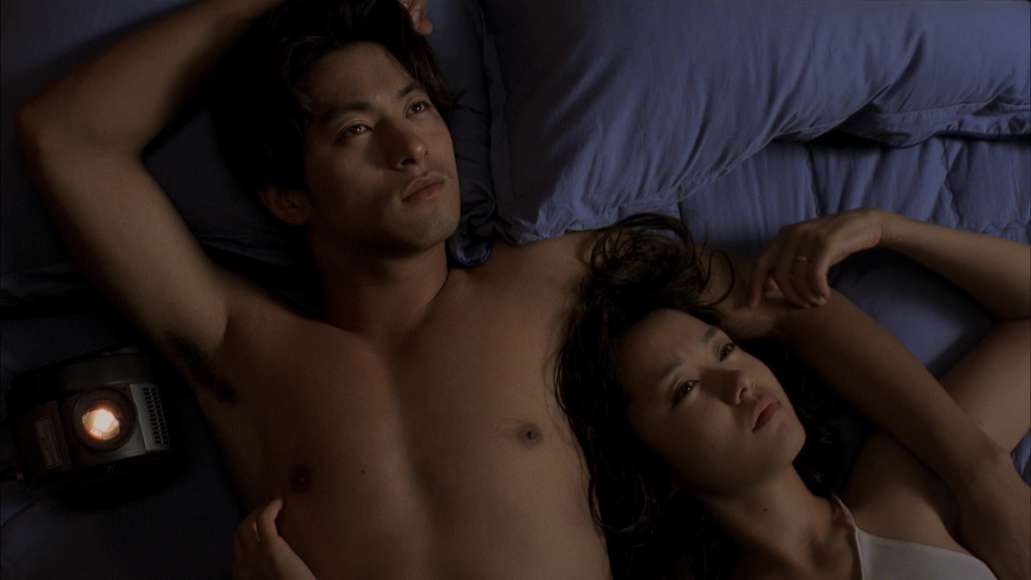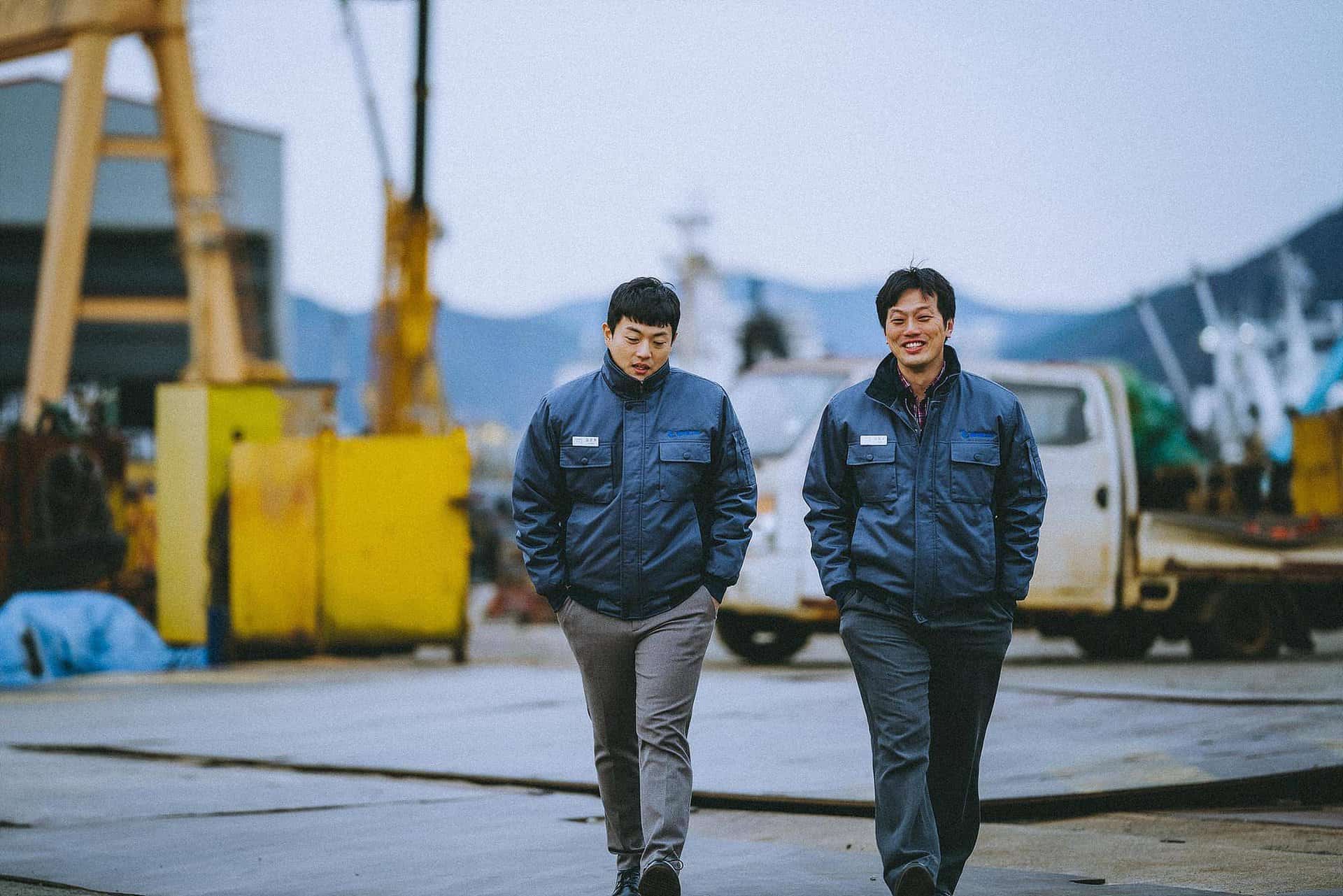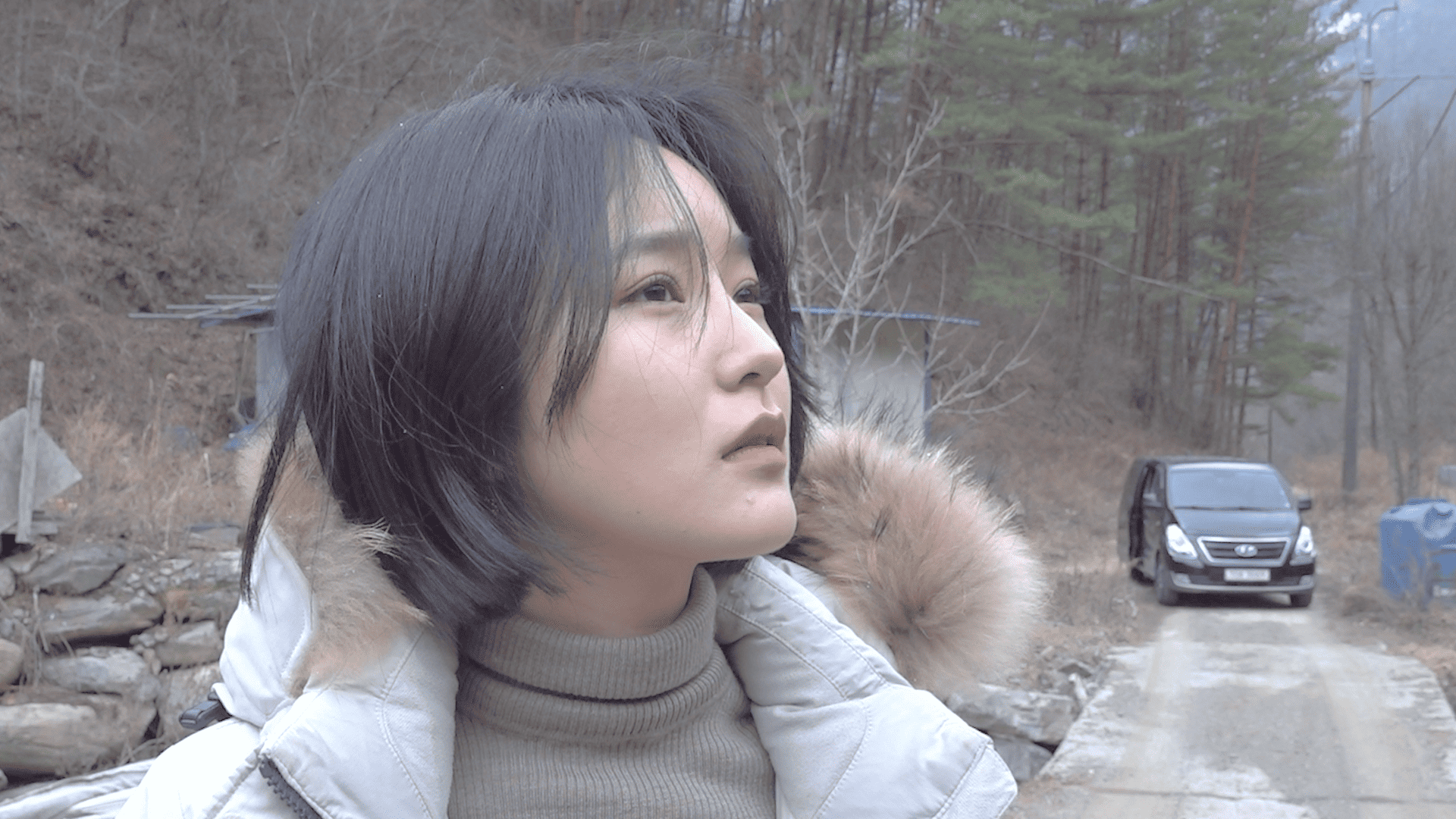Omnibus film projects looking at possible future political and cultural changes are somewhat en vogue in South-East Asia at the moment, notably the “Ten Years” series, starting in Hong Kong, going to Japan, Taiwan and Thailand. As yet, a “Ten Years Korea” hasn't been released, but the Koreans have taken it upon themselves to create their own project, away from the franchise. Featuring a trio of shorts from Ji-young Boo, Yi-kwan Kang and Seo-yoon Kim, “Let Us Meet Now” is a heartfelt plea for better relations between the two Koreas.
“Let Us Meet Now” will screen at Florence Korean Film Festival 2020

We open with Seo-yoon Kim's “Mr Driver”, where Sung-min (Yoo-ram Bae) is a delivery driver to the Kaesong Industrial Complex, a joint North and South venture in the demilitarised zone, where workers from the North and South meet. Coming from the South, Sung-min is nervous and unsure as to how to behave while at the complex; not speaking or removing his headphones and cannot even make eye-contact with the staff from the North, as they refer to him as “South Comrade.”
Suk-hee (Hye-ri Yoon), who takes his deliveries, tries to initiate conversation, and eventually he succumbs to her charms, taking something of a shine to her. As the days roll, they talk more and Sung-min plays Suk-hee music, all in secret, of course. But their little romance is soon to be ended as the powers that be take control.

The story reflects the real Kaesong Industrial Complex opened in 2004 to try and increase cooperation between the two nations. However, it was closed in 2016 with co-workers from the North and South having to go their separate ways. Despite working alongside each other, those from the North are still expected to follow their strict regime. Suk-hee is chastised for receiving the deliveries alone from a man from the South, and as such is replaced in her role. Sung-min finds that the others from the North are not quite so friendly.
With a short run time, we don't get to learn too much about the two leads (though nicely portrayed) and the “relationship” has to develop at a pace, so this is far from a depth exploration, but serves as a good exemplar of how the closing of the complex also led to the end of relationships, not just job roles. While the venture was to bring greater closeness, ultimately it resulted in highlighting the divide.

Most omnibuses tend to have a slightly more abstract piece, and “Two of Us” is that. Yi-kwan Kang's tale of a young couple going through difficulties is not immediately obvious at what it is getting at, but becomes clear as it progresses. Jae-beom (Hui-dong Ha) and Hyun-chae (Nam-mi Choi) are engaged and have just moved in with each other. But as their wedding approaches, cracks start to appear in the relationship.
Jae-beom is a busy tattoo artist while Hyun-chae is studying for a federal job. Seemingly an odd couple, they bicker over small things, struggling to even build a wardrobe in peace. Frustrated, Hyun-chae takes a walk at night, going to a 24-hour diner they frequent. Drinking beer, she starts to dance alone. Waking, Jae-beom goes looking for her, knowing where she will be. What then follows is a body-popping/break-dancing face-off between the pair, and the other patrons who join in. It is all rather bizarre, but sees the couple happy together once more.
To close, the couple, now married, watch the news with a broadcast regarding the opening of a North-South railway network, allowing the South to connect with China and Europe via land, ending their land isolation. The couple see this as an opportunity to travel.
While not as complete, inspiration is perhaps taken from Wong Kar Wai's “Happy Together”, with a bickering couple representing difficult international relations. They have differences and don't seem like a good match, but once the music starts, so does the chemistry. Things may not be perfect, but they can work through their differences.
This is perhaps the weakest of the trio – while not necessarily a bad thing – as perhaps the dance routine, while showing a strong performance from Choi, is perhaps a little overlong and unexpected. But also, this doesn't have quite a Korea-specific enough punch to hit the right notes. As stated, this scenario could perhaps be applied to Hong Kong's relationship with China (though now much more heightened) or indeed Britain's future uncertainties with regard to the EU. For me, this was a little generic.

The final segment, Ji-young Boo's “Hello”, is the longest, most developed and best on offer. A woman in South Korea (Jung-eun Lee), busy working two jobs and supporting her worsening mother, receives a call from a woman claiming to be from North Korea looking for her son. Naturally she dismisses it as a scam, but daily she calls again. Giving in, she allows the woman to speak.
We discover the son left the North for China, before moving to South Korea. He left his mother with a Chinese mobile phone, but she broke it, and dialled his South Korean number from memory, but obviously got it wrong. Illegal to receive calls from the North, our friend in the South agrees to look for him for a fee, but is unable to get much joy from an agency specialising in such occurrences as she is not a family member.
Obvious that she will not find the son, and seeing the condition of her own mother – a North Korean herself – deteriorating, she sees a way that the North Korean caller can help her, allowing former family to connect.
Building an impressive career after her role in “Parasite”, this is very much a Lee vehicle, and the segment is made or broken on her performance. Luckily, it is strong as a woman stressed and tired and not wanting of further bother. But the story stands on its own as well, with many insights into the nature of divided families over the border. They are so close, but unable to communicate.
Initially bothered by the caller – and indeed the caller dismisses her Southern sister as a typical money-grabber on demanding a fee – once taking the time to understand each other they realise they have a lot more in common than first thought. Politics aside, they can connect as two humans.
None of the segments are weak, and all have something to offer – limiting to three segments that can be more developed better than forcing in five shorter ones. Politics are pushed aside to look more at human interactions, and while leaders may push and shove over this, that and the other, the people of the North and South would be more than happy together.


